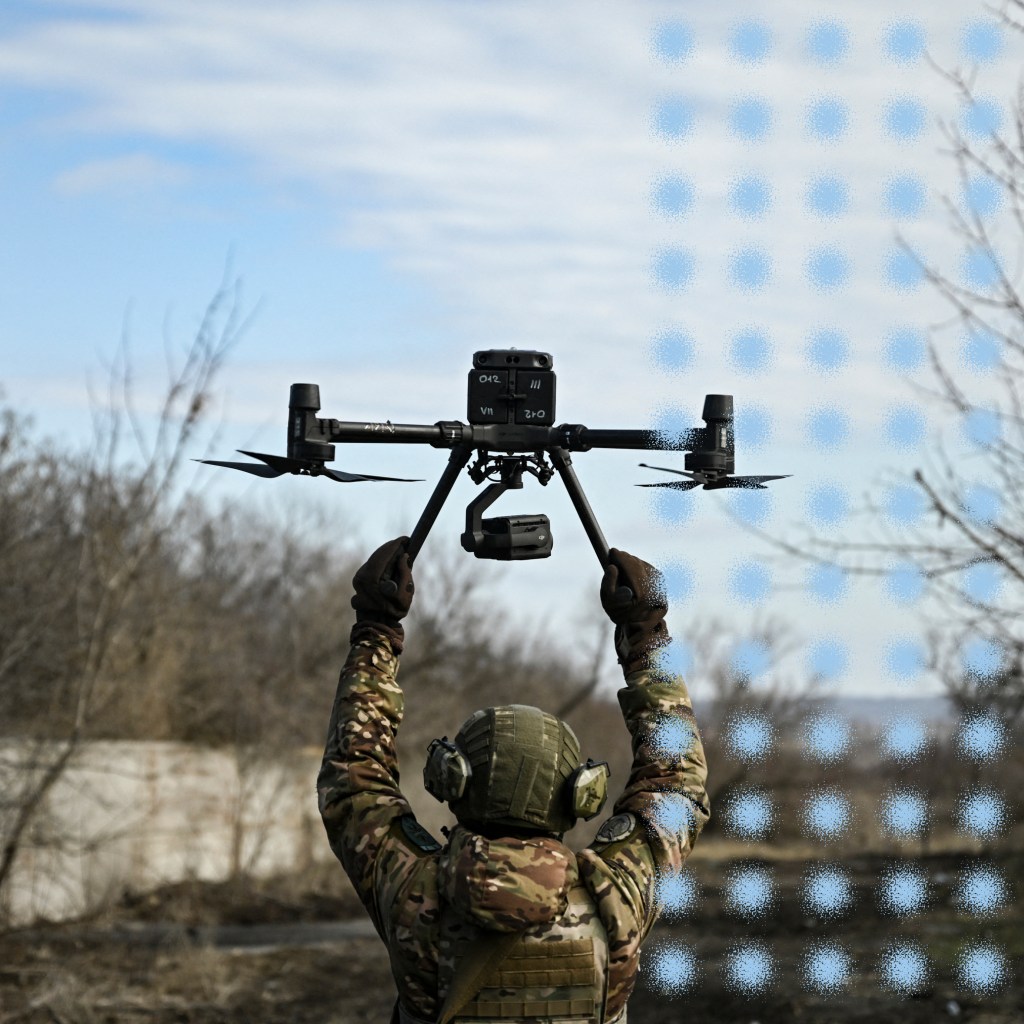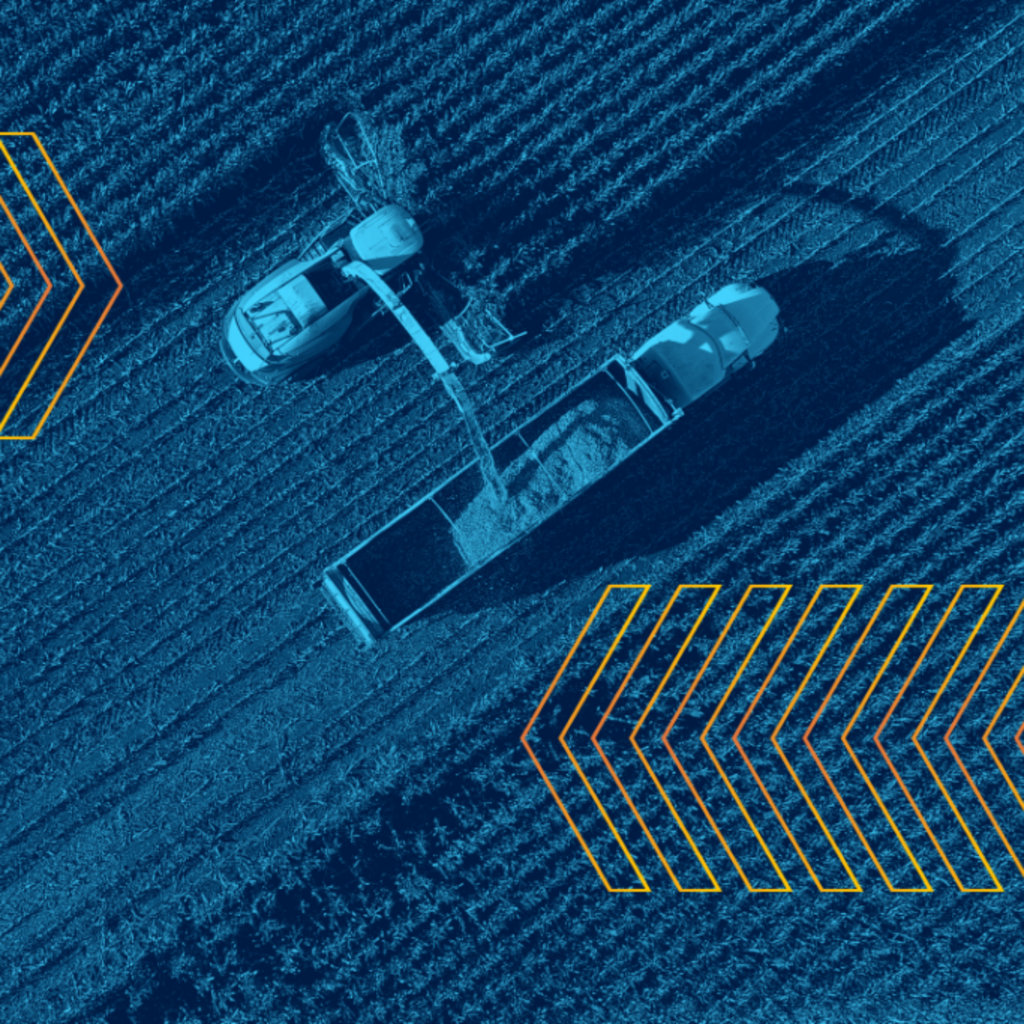Let’s Talk About Toilets
Fifty-five percent of the global population lacks access to safe sanitation, a deadly global health disparity that rarely finds its way into the spotlight. In this episode, we examine the scope of the problem, and the cultural challenges that have made it surprisingly difficult to fix.
Published
Host
- Gabrielle SierraDirector, Podcasting
Supervising Producer
- Asher RossLead Content Strategist
Audio Producer and Sound Designer
- Markus ZakariaAudio Producer & Sound Designer
Associate Podcast Producer
- Rafaela Siewert
Senior Producer
- Jeremy SherlickDirector of Video
Show Notes
More than four billion people on Earth do not have access to safe sanitation, a public health necessity that prevents disease, death, and loss of human potential. The issue is especially prevalent in India, a country that accounts for over half of the world’s open defecation. In this episode, three experts examine toilet access as an essential human need and explain the cultural and economic barriers that have made the problem so intransigent.
From CFR
From Sangita Vyas
“The Surprising Truth of Open Defecation in India,” Tedx Talks
From Tom Slaymaker
Read More
World Toilet Day, United Nations
“Flushed and Forgotten: Sanitation and Wastewater in Rural Communities in the United States,” Institute for the Study of Human Rights
“Water, Sanitation, and Hygiene,” UNICEF
“Global WASH Fast Facts,” Centers for Disease Control and Prevention
“Poor Sanitation’s Threat to Public Health,” World Health Organization (WHO)
“Plan to End Open Defecation by 2030 [PDF],” UNICEF
“About Swachh Bharat Mission,” India Department of Drinking Water and Sanitation
“Cleaning Human Waste,” Human Rights Watch
Watch or Listen
“Unblocking India’s Sewers...by Hand,” BBC News
Transcript
(Toilet flushing).
Toilets. Out of sight, out of mind, until one can’t be found. But just like healthcare and nutrition, access to a clean toilet has enormous health consequences. More than a million people die every year from diseases tied to poor sanitation, and millions more suffer illness, stunting and lifetime debilitations.
All told, fifty-five percent of the global population lacks access to safe sanitation. And for those trying to solve this problem, the biggest barrier may not be funding, or technology, but...culture.
I’m Gabrielle Sierra, and this is Why It Matters. Today...toilets.
United Nations: 00:29 “November the 19th is World Toilet Day.” https://www.youtube.com/watch?v=K1pjvFBZ8dM&list=PLyv2sudQhZoMOqWLaFIOklyi2pFgElvGx&index=6
TIME: 00:13 “The day aims to end the global sanitation crisis.” https://www.youtube.com/watch?v=QE-_QeAQjTE
United Nations: 00:26 “This is a situation for billions of people around the world.” https://www.youtube.com/watch?v=LCKsU4bPFOQ
SIERRA: So, World Toilet Day is coming up and the response to hearing that there is a serious UN-sponsored day for toilets might make people laugh, or feel a little iffy on discussing it. So why would we need a day like that?
Brooke YAMAKOSHI: Well, what would you do if you didn’t have a toilet?
Fair point. This is Brooke Yamakoshi. She is a water, sanitation, and hygiene specialist at the United Nations Children’s Fund, also known as UNICEF, based in New York. She knows a lot about toilets.
YAMAKOSHI: I mean, the ability to manage our bodily functions, and these things that we frequently don’t talk about, but are so core to us, bodily functions of urination, defecation, and for half the population, menstruation. It’s really at the core of our dignity. It’s also a foundation for health. Without a toilet that contains waste, and then separates it from people coming in contact with that waste, we would all be exposed to harmful pathogens that cause many different illnesses and diseases. And it doesn’t stop at the toilet either. So without waste being safely transported away from our toilets and from our homes and treated somewhere, we would all be surrounded by wastewater in our neighborhoods and in the environment.
SIERRA: So in terms of the numbers, can you sort of give me a wide-angle view of toilet access as a global issue?
Tom SLAYMAKER: Well, there are three, main things that we measure at the global level.
This is Tom Slaymaker. He also focuses on global monitoring of drinking water, sanitation, and hygiene at UNICEF headquarters in New York. He sees the big picture of how this plays out around the world. He spoke to us on a rainy day from London.
SLAYMAKER: So one is the population who practice open defecation. So that means they don’t have any kind of toilet at all and they just use, you know, bushes, fields, beaches, or watercourses.
The other thing that we measure is the population with a basic sanitation service. So that means that they have some kind of hygienic toilet that is not being shared with other people, that’s not shared with other households. And then the next level of service up is what we call “safely managed sanitation.” And that means that you not only have a hygienic toilet, but you also have a mechanism in place to ensure that the human waste that’s produced is then being treated and disposed of safely before being discharged back into the environment.
SIERRA: And how many people fall into each of these categories?
SLAYMAKER: So the global level, we still have 673 million people practicing open defecation. There are about 2 billion people who still lack even a basic level of service. So that’s one in four people worldwide. And if you look at the population without safe sanitation, that’s more like 4.2 billion people.
That is more than half the people on earth. And each of them runs the risk of getting sick, every day. Access to sanitation is a problem across the globe - even in North America - but the problem is particularly dire in parts of South Asia, Southeast Asia and Sub-Saharan Africa. It tends to be worse in poor areas with rapid population growth.
SIERRA: Do we have an idea of how many people die as a result of this problem?
SLAYMAKER: WHO have estimated that globally, around 1.2 million deaths could have been prevented through access to adequate drinking water, sanitation, and hygiene. The problem is particularly acute for young children who are very vulnerable. And so, I think we estimate there are around 300,000 children under five who die each year as a result of not having basic water, sanitation and hygiene facilities.
SIERRA: So when you look at a map, where do you see this happening?
SLAYMAKER: Well, some regions and countries have much further to go. If you look at our data you’ll see that particularly Sub Saharan Africa, and Southern Asia, and also Oceania, the Pacific, have much lower levels of coverage of sanitation facilities. And this is partly to do with different stages of development. These are mostly poorer countries. But even if you move up the sanitation ladder, and you start to look at issues of treatment and disposal of waste, even in Europe and North America, and in Australia and New Zealand, we’re still only at about three quarters of the population that has this high level of service. So all countries have further to go in in order to improve sanitation, but obviously they’re all starting at different positions.
YAMAKOSHI: Even here in the US, there are many people that still lack safe sanitation. And that’s not just toilets, but waste being transported and treated safely away from their household. There were congressional briefings on this just last year in 2019 and a great report that came out on this called “Flushed and Forgotten: Sanitation and Wastewater in Rural Communities in the US,” and that deals with all sorts of low income communities that tend to be Black, Native American and Latinx, and highlights a lot of the inequalities that still exist even in our own country.
SIERRA: Do you think you can give me a sort of run through of how a lack of toilet access leads to disease transmission? What kinds of disease? What are people at risk of here?
YAMAKOSHI: Yeah, absolutely. So there are a few different ways. So first of all, I’ll talk about the 673 million people that don’t have any type of toilet. So for those people, their feces are just in the environment where they live, where they work, where their kids are playing, where maybe they’re farming or growing food for their own consumption. Feces in the environment can make it into their homes, and eventually into their bodies, through a couple of different pathways. So one is through just normal human behavior, it could be as simple as walking around outside and then tracking that into your home. Or it could be through the behavior of animals may be doing the same thing, or even flies that are going back and forth.
SLAYMAKER: But it’s not just about whether I’ve got a toilet, it’s about whether my neighbors have got a toilet, and what happens to the waste from those toilets. So clearly, once you flush, you can’t just forget about it. You want to be reassured that that waste is going somewhere, and that it’s going to be treated, and it’s not going to just be flushed into the street, or into someone else’s backyard, or into a slum where somebody else’s kids are going to come into contact with the waste.
YAMAKOSHI: Now just a quick run through of the different diseases that you can get from not having a toilet. So, the big one is diarrhea. This is a major public health concern. It’s, I believe, the second biggest killer of children under five. And this category of diarrheal diseases includes cholera, which is an acute diarrheal disease that can kill within hours. So, a really big concern. But then there are other neglected tropical diseases. So, these are things like worms and trachoma that can cause a significant burden of disease globally, as well as vector borne diseases that are things you’ve heard of like West Nile Virus that have a more indirect pathway through sanitation that can facilitate the breeding of these mosquitoes. You know, really critically for UNICEF, poor sanitation can lead to malnutrition and stunting, which is something that can lead to poor physical and cognitive development of kids and affect them throughout their entire life. And there’s other things that you’ve probably heard of becoming a bigger concern globally, like antimicrobial resistance. So poor sanitation can increase the risk of these preventable infections that we then treat with antibiotics. And then, you know, we are excreting these sort of organisms into the environment. So, that’s just kind of a run through of some of the diseases that a lack of toilets can cause.
Sickness and death are only the primary consequences when people don’t have clean toilet access. Those of you who caught our episode on antibiotic resistant bacteria know how serious this problem can be, and that it doesn’t stay in one place for very long.
And lack of clean and safe toilet access can also lead to serious and long-term social issues.
SLAYMAKER: If you don’t have basic sanitation facilities in schools, then it’s very difficult to educate children. And if you don’t have them in healthcare facilities, then you can get lots of unintended infections, while you’re at that health care facility. But it also goes beyond that, I think. We would also say that it’s about dignity, and it’s about human rights.
YAMAKOSHI: Lack of a toilet can expose women and girls in particular, although really all people to sexual, psychological or physical abuse or violence. And I mean, it’s really important to note that even just the perceived threat of violence or harassment can cause stress. And we all know that just from having to try to find a public toilet in a park after dark, for instance, those of us that live in the US. And this can cause women and children in particular to not go outside to use a toilet and to engage in other sorts of behaviors that could be risky for their health, like holding it or maybe defecating or urinating in a bucket until they can empty that outside. Lack of toilets can dissuade women from participating in the labor force and this has serious consequences for all of society and for a country’s economic development. If there aren’t toilets in in office buildings, workplaces, markets, then women may not choose to work there or may have to cut their hours short or may miss work on certain days of the month for instance, if they’re menstruating, or days of the week if there’s something that’s making them specifically ill. So this has a cost for all of society. It’s not just about those specific women and children. It’s something that prevents us as a whole society from moving forward.
SLAYMAKER: Sanitation is really a sort of key driver of economic productivity and a driver of development. So I think, historically, Europe and North America have made dramatic progress in economic productivity, following improvements in sanitation.
YAMAKOSHI: So because of this, sanitation is recognized as a human right and there is actually a UN General Assembly resolution on the human right to sanitation, which entitles everyone to “a physical and affordable access to sanitation in all spheres of life that is safe, hygienic, secure, and socially and culturally acceptable, and that provides privacy and ensures dignity.” This link between human rights and sanitation has been made by many who we recognize as human rights champions throughout history. So this is people like, you know, Mahatma Gandhi, Nelson Mandela, but also Martin Luther King, Jr.
Okay so we get how important safe sanitation is for health, quality of life, and economic growth. But as we discussed at the top of the episode, solving the problem isn’t as simple as coming into an area, installing a few hundred toilets, and leaving. The process of changing people’s habits is far more complicated.
YAMAKOSHI: Sanitation or using a toilet is a behavioral pattern that many of us have established over many years. So ensuring that everybody, everywhere has access to safe sanitation is about a few different things. It’s not just the toilet, although the toilet and the supply is one important component. It’s about the behavior, and it’s also about the government policies and the sort of way that government can enable sanitation to be provided to everyone and the view that government takes on sanitation being a public good.
It’s really critical for first-time users of sanitation to do two things that are related to norms. The first is to abandon a longstanding norm of open defecation. And then it also calls on people to create a new norm, and that new norm is of consistent toilet use. And that can also be challenging, because, again, this comes back to that it’s not only about the behavior, depending on the type of facilities that you end up constructing for yourself, they could be more comfortable and more desirable than other types of facilities. So it’s really important to see how the facilities can reinforce the behavior. And the behavior, obviously being at the center of what it would take to get everybody to be able to use a toilet for the first time everywhere.
SLAYMAKER: It’s about changing social norms around sanitation. And making it no longer acceptable to practice open defecation, and generating an awareness of the risks associated with unsafe sanitation, and a sense of pride in having a clean village or a clean community or clean country that other people might want to visit and and invest in. But the drivers or the incentives, I think, vary widely. So in some countries, you find that, you know, the main driver is around health, concerns about health, but in others, it might be around aspirations of modernity. So, you really have to understand what is going to motivate people to act and to invest their own money, but also to work with others to try and solve the problem.
We’re going to take a quick break, but when we get back we’re going to talk about India - a country that still accounts for half of the world’s open defecation.
When it comes to toilets, the spotlight often falls on India. According to 2017 statistics from the World Health Organization and UNICEF, over 542 million Indians lack basic sanitation, and 345 million still practice open defecation. The health effects are devastating, including disease, death, and lifetime debilitations. The last of these has been described as one of the largest losses of human potential in history.
India’s problem is not only big, but particularly hard to solve. And that’s because the country’s sanitation habits are tied to religious and cultural beliefs that have existed for thousands of years.
Sangita VYAS: You can’t really talk about open defecation without talking about India. More than half of rural Indians still go in the open based on the most recent credible estimates of you know, where people poop.
This is Sangita Vyas. She’s a researcher that focuses on environmental risks to child health in India.
VYAS: So, to understand why open defecation persists we have to sort of understand a little bit about how people think about purity and pollution in India. So why is this important for sanitation? Well, it’s because these ideas of purity and pollution map on to the caste system. So, what is caste? Well, caste has its roots in Hinduism and it’s basically a social hierarchy. It’s something that you’re born into. You can’t change caste much like you can’t change race. Now, higher caste people are seen to be more pure than lower caste people and people from the very lowest castes, which historically were called Untouchables and now they are called Dalits, they are seen to be permanently polluted and unfortunately they are extremely marginalized and oppressed in Indian society even today.
Now, the Dalit community they have traditionally been responsible for doing the work called manual scavenging. This is the daily cleaning of feces from a dry toilet. And because people from this particular caste had to do this work, were compelled to do this work, they were seen as polluted by this work.
Over time, as opportunities have slowly grown, members of the Dalit caste have become less willing to carry out this work. This means that many Indians in rural communities have been left to clean their own latrines. If the act of emptying your latrine would cause you to become untouchable within the caste system, chances are you’d avoid doing it. As a result, large pit latrines and open defecation are seen as good alternatives.
Yet, exposure to waste is causing Indians, and particularly Indian children, incredible harm, including mental and physical damage that will remain with them all their lives. Of these non-lethal effects, the most dramatic is stunting, which affects some 65 million Indian children under the age of five. It has been described as one of the largest losses of human potential in history.
It’s a problem that the Indian government has tried to address.
VYAS: So the Indian government started this campaign in 2014. And the goal was to eliminate open defecation in a five year timeframe. And the vast majority of that work and the money spent on this campaign went towards latrine construction. Now what I’ve just told you about is that it’s much less about economic status and having the money to construct a toilet. It’s much more about attitudes and norms and beliefs that really promote open defecation and prevent people from wanting to use the latrine. So, you would think that, well, maybe it needs to be more about promotional campaigns to try to convince people that going in the latrine is good and pure and doesn’t create challenges for observing purity. And unfortunately, that wasn’t really what was focused on in the campaign, in the government campaign. So it was just much more about construction, much less about convincing people that using a latrine is a good thing. And that there are ways to empty the latrine that don’t pose challenges for observing purity, and things like that.
India’s ruling party claims to have constructed more than 110 million toilets as part of this effort, and made them accessible to 600 million people. And while this number is impressive, Sangita and other researchers believe there is still a great amount of work to be done, not only to maintain these facilities, but also in the field of education.
VYAS: So, the government very much believes that this program was successful and that there’s not really a need to keep doing this government campaign anymore. The political will to work on sanitation is now over. Does open defecation still persist? Yes, it does. A number of studies that include work that my colleagues and I have done, include work that other researchers and teams have done, really show that many people still defecate in the open and that the problem is far from being solved. Our research also shows that many households now have a latrine. And so the Swachh Bharat mission really did seem to actually succeed in getting households to construct latrines. But there’s still a barrier in terms of people using the latrine. You know, these are beliefs that have been held for a very long time. They are deeply ingrained and they’re kind of similar to race in America. I think that solving the sanitation problem in India would require really attacking caste, really attacking untouchability. And if people didn’t believe in untouchability or didn’t believe in purity anymore, then they wouldn’t mind using the toilet, but it’s gonna be really tough to get people to not believe in purity anymore.
Open defecation is a public health issue that holds India back even as the country grows in so many other ways. Breaking old cultural barriers is a slow, difficult task. But that doesn’t mean that the experts who have dedicated their lives to fixing this problem are giving up. Even as challenges like India loom large, there have also been success cases.
YAMAKOSHI: Eliminating open defecation by 2030, which is the year that the global community has marked as the target for getting this done, will require a massive acceleration in toilet use and a massive acceleration beyond the rate at which we’ve been progressing. One of the key factors in rapid progress all over the world, where we’ve seen societies achieve near-total sanitation in a generation is strong government leadership. Strong government leadership that prioritizes sanitation and celebrates things like World Toilet Day, despite it perhaps sounding a little bit funny. So maybe just looking back to the 1960s and the 1970s, there were four countries in East Asia, and those were Singapore, Thailand, South Korea and Malaysia. And they were able to produce really remarkable results in a generation. And the interesting thing about those countries is that while now we think of them as being wealthy countries, at the time, the per capita income levels in those East Asian states were equivalent to the income levels of many Sub-Saharan African countries today. So that just shows that even in a resource-constrained environment, you can make a lot of progress.
Since 2000, there are a couple of states that have made rapid progress in eliminating open defecation or reducing open defecation to much lower levels. So Ethiopia, Cambodia, both of those countries reduced open defecation by more than 50 percentage points. And then there are other countries like Laos, Nepal and Indonesia, that have been able to increase the use of toilets to more than 40 percentage points and those are decent toilets that are separating waste from human contact. And to highlight another country that is a low-income country is Burkina Faso. Since 2000, Burkina Faso has reduced open defecation by 25 percentage points, which is really incredible.
Experts agree that strong, sustained support from the government is an essential factor in solving the problem. But when it comes to the nuts and bolts, there is no single message or technique that will work on a global scale. And that’s because the cultural and behavioral challenges are different depending on where you are.
SLAYMAKER: A lot depends on, you know, the way people are living, the type of housing they have. Whether they’re living in urban areas or rural areas. So really, it’s very important to have that local knowledge and that’s why having country offices who are very embedded in the local culture and in the local economy, trying to figure out what is going to be the best combination of interventions in order to move things forward on the ground.
SIERRA: I just find myself learning so much from this conversation and it makes me wonder if there’s enough global awareness about this problem?
SLAYMAKER: Well, I think for those of us who work on it, we do get frustrated that it’s not taken more seriously or given more political attention. I think one of the things we find is that the first thing that a politician will notice when they visit a community or visit a country is the sanitation facilities. If the toilets are in a terrible condition, they’ll complain but it’s also the first thing that they forget when they leave, and they get in the car, or they get in the plane and go away. And I think one of the reasons for that is that, you know, sanitation is just not a very sexy topic. And so, politicians would much prefer to be opening a school or opening a new health care facility than cutting the ribbon on a new fecal sludge treatment facility, for example. But there all, you know, examples of where governments have really stepped up and shown leadership and recognized the importance of the issue, and it shows that it can be done.
When we think of things someone needs in order to have a chance at a decent life, we think of food, education, healthcare, freedom. It’s strange at first to add the word “toilet” to the list, but, you know, the more you think about it, and the more you consider the consequences, toilets really do emerge as a basic human need.
The desire to end death and disease due to poor sanitation is reason enough to solve the problem. But it’s also not the only reason. The health effects for those who lack toilet access can easily spill over to the rest of the world’s population, through resurgent diseases and antibiotic resistant bacteria. Lack of access also slows development and harms innovation in countries like India with which the United States needs strong strategic partnerships. As mundane as they seem, toilets are simply a key part of developing a fair, peaceful, and prosperous world.
And yet for all that, they are rarely front and center when people talk about global health. And that has to change.
SIERRA: So. If you could say one thing to someone who has never thought about this issue before, what would it be?
YAMAKOSHI: That’s a really good question. I would say that just because you have sanitation, it doesn’t mean that you’re safe. It’s not enough for it to just be you. Sanitation is a public good. It requires everyone to have it. It requires your neighbor to have it for your own health. It requires all of society to have it for a country to be able to develop. I know that these notions of modernity and using the word “modern” can sometimes be loaded, but I would challenge you to name one country that you think of as being advanced or modern that doesn’t have universal access to safe sanitation. In that way, sanitation is a solution. It can help to achieve all of these other goals. Goals in health, in gender equality, poverty eradication, education, having clean environments, and food security, and so many more other goals that I’m forgetting. So if we want to live in these clean and healthy homes for ourselves, if we want our children to go to schools that are safe and healthy learning environments, if we want to go to the hospital, and be able to relieve ourselves inside, we need to give this issue priority. And the last thing I’ll say about this is sanitation is really a no-regrets investment. I would really challenge all of us to find one government or one individual person that invested in sanitation and regretted it.
For resources used in this episode and more information, visit CFR.org/Whyitmatters and take a look at the show notes.
Have a question or some feedback? Want to just say hello? Send us an email at [email protected].
Subscribe to the show on Apple Podcasts, Spotify, Stitcher, or wherever you get your audio. And if you like the show, you are very much encouraged to leave us a review!
Why It Matters is a production of the Council on Foreign Relations. The show is created and produced by Jeremy Sherlick, Asher Ross, and me, Gabrielle Sierra. Our sound designer is Markus Zakaria and our intern is Senniah Mason. Teagan Judd and Makenzie Drukker provided us with extra support on this episode. Robert McMahon is our Managing Editor, and Doug Halsey is our Chief Digital Officer.
Original music is composed by Ceiri Torjussen. Special thanks go to Richard Haass and Jeff Reinke.
For Why It Matters this is Gabrielle Sierra signing off. See you soon!






